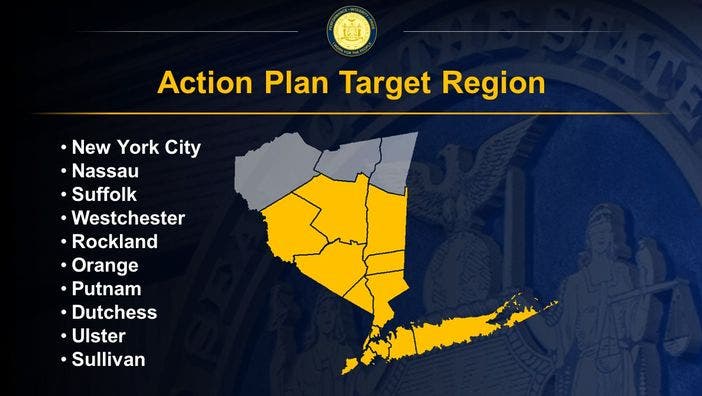Health & Fitness
NY to Ramp Up Fight Against Zika Virus in Westchester
With mosquito season just days away, state officials announce a new aggressive 6-step plan.
State officials have launched a six-step action plan to combat potential transmission of the Zika Virus in communities across New York, especially in the lower Hudson Valley.
So far the confirmed cases of Zika in Putnam, Rockland and Westchester have been in people who had recently returned from travel to one of the countries where the outbreak is spreading explosively, including the Caribbean and Latin America.
The state's plan targets the virus at its source – Aedes mosquitoes – with enhanced trapping and testing throughout the entire downstate region.
Find out what's happening in Peekskill-Cortlandtwith free, real-time updates from Patch.
The Aedes aegypti mosquito is known to carry Zika -- it is famous as the yellow fever mosquito. State officials are worried about its relative, Aedes albopictus, which is found in the lower and mid-Hudson Valley, New York City and Long Island.
Aedes albopictus is an aggressive biter, closely associated with vegetated areas in and around homes, according to theCenters for Disease Control. It transmits dengue and chikungunya viruses and has also been found infected in nature with: West Nile, Eastern equine encephalitis and Japanese encephalitis. It can also transmit dog heartworm parasites.
Find out what's happening in Peekskill-Cortlandtwith free, real-time updates from Patch.
There are 70 different species of mosquitoes in New York State; Aedes mosquitoes make up just three to five percent. Mosquito season in New York runs from April through September.
The greatest danger facing those who contract Zika is a birth defect known as microcephaly, state officials said. This disease occurs in babies of mothers who are infected with the Zika Virus while pregnant. Zika may also cause a rare disorder called Guillain Barré Syndrome, which can cause temporary paralysis. The World Health Organization declared Zika a public health emergency of international concern in February.
- The state will distribute 100,000 larvicide tablets to treat standing water and local municipalities, residents and business owners will be challenged to host clean-up days. Call the new Zika Information Helpine, 1-888-364-4723 to request your larvicide tablet, which lasts 2-3 months.
- State workers are deploying 1,000 special traps – enough to cover the entire target region – and testing 60,000 Aedes mosquitoes every week.
- New York is making available 20,000 free Zika Protection Kits to pregnant women, which contain educational materials, insect repellent, condoms and larvicide tablets to treat standing water.
- In the event Zika transmission from an Aedes mosquito is confirmed, a team of state officials will be dispatched to inspect surrounding areas, perform additional treatment and develop a local action plan.
- The New York State Health Commissioner will issue emergency regulations requiring all local health departments to submit Zika control plans in the event tests show Zika mosquitoes present with updated spraying protocols that officials know can kill the specific mosquito.
- Multi-lingual brochures, posters and fact sheets will be targeted to New Yorkers across the state, as well as international travelers from Zika-affected areas at airports. The outreach campaign also includes the Zika Information Helpline: 1-888-364-4723; and a website dedicated to the Zika Virus.
RELATED:
MAP: NY Zika Action Plan
Get more local news delivered straight to your inbox. Sign up for free Patch newsletters and alerts.
